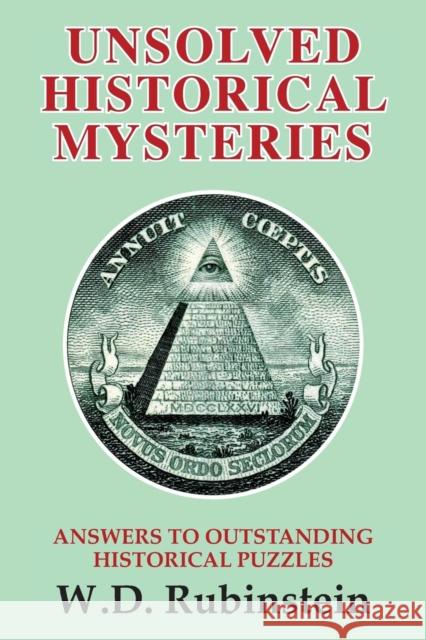Unsolved Historical Mysteries: Answers to Outstanding Historical Puzzles » książka
Unsolved Historical Mysteries: Answers to Outstanding Historical Puzzles
ISBN-13: 9781911454441 / Angielski / Miękka / 2017 / 1 str.
And he was present when a deserter was shot at dawn. He records all this - and much more - with an unusual humanity.As a bystander living amidst the troops, he often had a special view of the events that unfolded before his eyes. Van Walleghem notes much that mattered to the soldiers there, and to the local people. This includes the influence of bad weather on the mood and morale of both troops and civilians, as well as military events. His comments on the different attitudes of English, Irish, Australian or other Empire troops and divisions are often priceless. But Van Walleghem equally records the misery of the local Flemish population and their relationship with the British rank and file: in bad times such as when a local is accused of spying, but also in good times when a village girl gets married to a British soldier. This diary is not just a forgotten source of the western front, it is one that will forever change our views on the conflict, and on how men and women tried to cope.In a year when many works will be published about Passchendaele this is a unique book.
We still do not know for certain:
Who shot JFK? Was their a conspiracy, and no lone gunman?
Who did the ‘Jack the Ripper’ murders?
Who wrote the ‘Shake-speare’ plays?
Did Richard II murder the Princes in the Tower?
Did Jesus marry and survive the Crucifixion?
What are the ancient mysteries of the Great Pyramid and the Sphinx?
Was the man calling himself Rudolf Hess and who landed in Scotland in the Second World War really Hitler’s Deputy, or a deceptive double? Here, a leading historian asks questions, explores possible answers, and presents a fresh view of these great and unresolved mysteries.This is a fascinating and objective series of enquiries. The distinguished author evaluates what evidence exists, and the many and varied theories offered on each unsolved but nagging mystery.The book goes behind the scenes to examine much that remains in the shadows. He enquires about clandestine intrigues, whitewashed evidence, fraudulent claims, and much that many academic historians have previously ignored.Professor Rubinstein reaches some quite unexpected conclusions.











